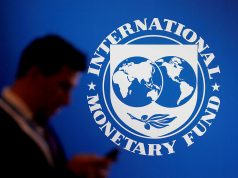We might yet see the advent of an application by 2019, to be available on mobile phones, that can allow Filipino citizens to renew their passports online using “selfies” or self-taken photographs. That is, if Foreign Affairs Secretary Alan Peter Cayetano can follow through on his claim that the Department of Foreign Affairs (DFA) is now “preparing the technology” for this.
“We think next year will be the first time” we can use selfies for passports, Cayetano told a hearing at the House of Representatives last week regarding the delays in the passport application system. But, going by the DFA’s track record in the last three years, I doubt if what Cayetano envisions can actually come true by 2019.
Delays in passport processing have become the rule rather than the exception since maybe about three years ago, and Cayetano blames this on a surge in demand rather than faults in the application and renewal systems. However, what I cannot understand is that up until towards the end of the previous administration, there was actually little reason to complain about the passport process. Since late 2015, however, the process has been problematic.
And controversial, to say the least. Take the case in August 2016, when almost 200 foreigners were stopped at the airport for illegally using Philippine travel documents to leave the country. Five Filipino escorts were reportedly with 177 Indonesians and 10 Malaysians who attempted to pass themselves off as Filipinos travelling to Saudi Arabia as Filipino Hajj pilgrims.
The pilgrims were about to board a Philippine Airlines flight when stopped. Issued special documents from the Philippine government, each pilgrim reportedly paid travel agents in Indonesia between $6,000 and $10,000 for travel documents and arrangements to go on the mandatory Holy Pilgrimage through the Philippines.
Then there was, also in 2016, the allegation that the production of e-passports, under a 10-year contract with state-run APO Production Unit starting October 2015, was overpriced by as much as P10 billion. The claim was that passports were being sold at a price higher than what should be. This was after the same APO was caught in a controversy with a plunder suit against officials who approved allegedly questionable payments of millions in sales commissions to “sales specialists” from 2011 to 2015.
And then, just early this month, 23 “fixers” selling passport appointment slots for as much as P10,000 each were arrested in separate operations in southern Metro Manila. The suspects were collared in entrapment operations at Gate 3 Plaza in Taguig City; in Libertad, Pasay City; and at Yah Suy travel agency, which was just across the DFA Aseana office at the corner of Macapagal Ave. and Bradco St. in Parañaque City. There were no such fixers until the passport appointment system was taken over by APO.
Obviously, some unscrupulous syndicates have been taking advantage of the change in the passport appointment system, the change in passport printing supplier, and the change in government officials to conduct criminal activities. Meantime, legitimate passport applicants have been enduring delays in applying for or renewing a passport.
In a congressional hearing just last week, ex-DFA secretary Perfecto Yasay said the P38.53-billion, 10-year electronic passport contract between the government and its official passport printer, state-run APO, is grossly skewed against the government and is more in favor of a private printing company tapped by APO as its joint venture printing partner.
Yasay questioned the venture and claimed to have lobbied for the return of passport printing to the Bangko Sentral ng Pilipinas (BSP). This was after noting that the state-run APO Production Unit “was grossly ill-equipped, (and) did not possess the technical capability to print e-passports.” To fulfill its contract with the DFA, APO needed to partner with a private printer.
The change in printer, from the BSP to APO, occurred during the Aquino administration, after the DFA sent a letter of inquiry to all recognized government printers (RGPs) on Feb. 24, 2014 for the supply of e-passports. In March that year, the BSP informed the DFA that it was no longer interested in undertaking the job. Prior to this, the BSP had been producing passports for decades. The DFA’s printing contract with the BSP expired in January 2015. Thus, the contract went to APO, a government-owned and -controlled corporation as well as one of three recognized government printers.
Incidentally, other than passports, I believe that in 2014, APO also started undertaking the security printing of tobacco tax stamps. These stamps are put on cigarette packs, as required by law. While the BSP could have done this as well, both passport and tax stamp printing — both security printing jobs — ended up with APO at the government’s behest, during the Aquino administration.
Yasay claimed that APO entered into a Joint Venture Security Printing Agreement (JVSPA) in November 2014 with a private company, after acknowledging that it did not have the technological capability to print “highly sensitive” and “high volume” jobs that its private partner could deliver. I believe this contract was for the printing to tobacco tax stamps.
But Yasay also claimed that he suspected “an elaborate scheme” for the multibillion-peso contract for passport printing to eventually go to APO. When the DFA signed a memorandum of agreement with APO for the printing of e-passports, on Oct. 5, 2015, APO already had a private partner — the same one from 2014 for the tax stamps — that could provide it technical expertise.
My personal position on the matter has always been that security printing, whether for money or passport or tax stamps, should always be with the BSP. Even if this means the BSP will have to take on private suppliers. My thinking is that no other place can be more secure than where we print the country’s currency. Moreover, the BSP has its own printing facility.
I can only hope that Congress can propose measures that could allow the DFA to return passport printing to the BSP. The DFA can also consider investing in its own facility and equipment, with all procurement going through public bidding. After all, the DFA will never cease to print passports. And the same facility, while owned by the DFA, can be run and managed by the BSP for it.
Any existing arrangement for passport production and passport appointment should be reexamined to ensure that they fully comply with government procurement and auditing rules. No negotiated deals, no leases, and no joint ventures. And, as I have written previously, any review should be skewed towards ensuring complete transparency and accountability in the process, all with the aim of improving delivery of public service at best value to passport applicants.
Marvin A. Tort is a former managing editor of BusinessWorld, and a former chairman of the Philippines Press Council.



